March 31 is International Transgender Day of Visibility, dedicated to celebrating transgender people and raising awareness about transphobia. But with the ongoing rise in transphobic legislation, even visibility can prove to be dangerous. Trans for trans relationships — romantic or otherwise — can act as refuges for trans people seeking love and understanding during a time of increased hate. This March, WSN met up with five T4T couples in New York City to discuss trans joy, T4T love and what the Trans Day of Visibility means to them.
Love in a time of transphobia
Five T4T couples talk to WSN about what love looks like, what the Trans Day of Visibility means to them, and how they navigate a world that increasingly seeks their erasure.
March 31, 2023
Ariel & Saoirse
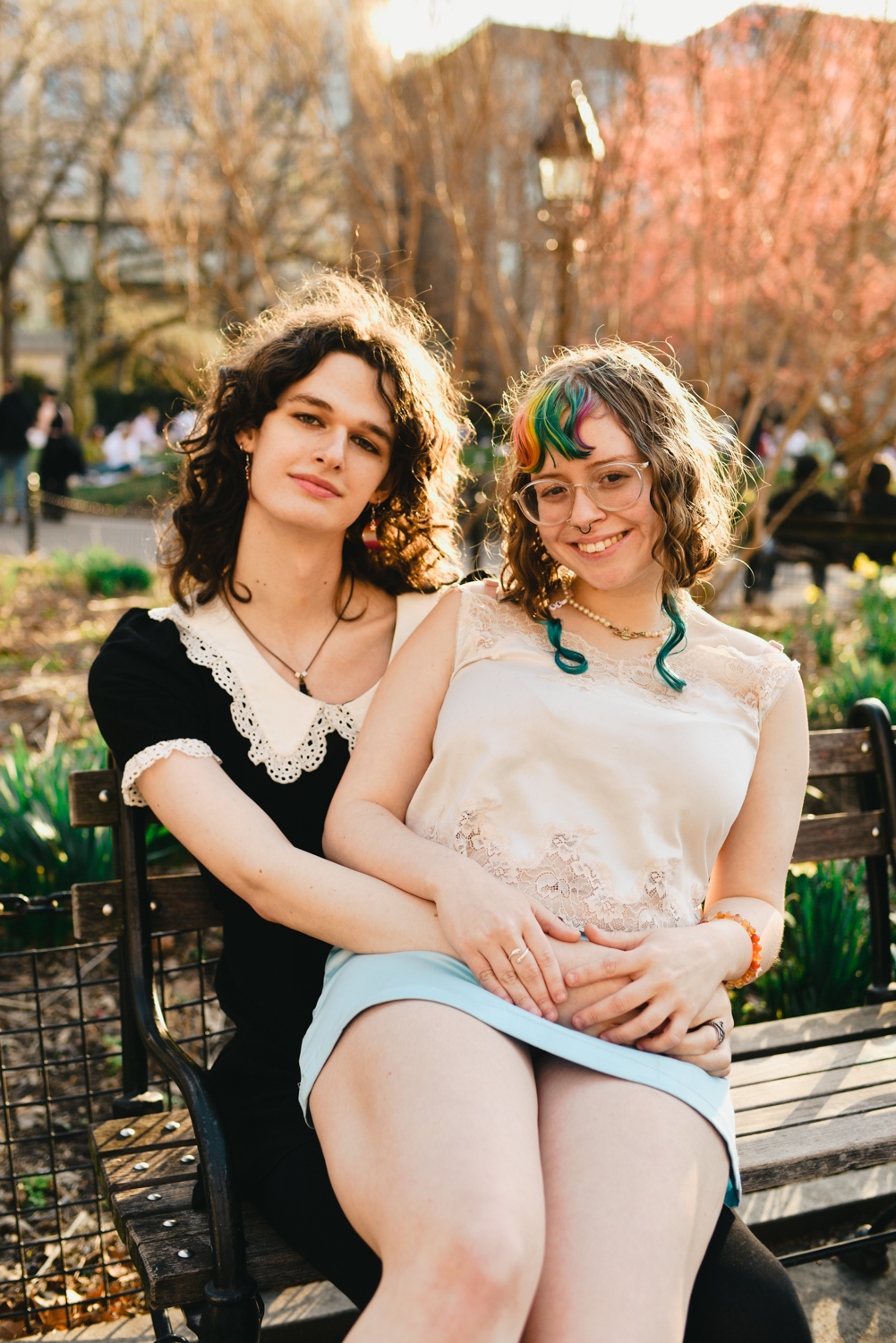
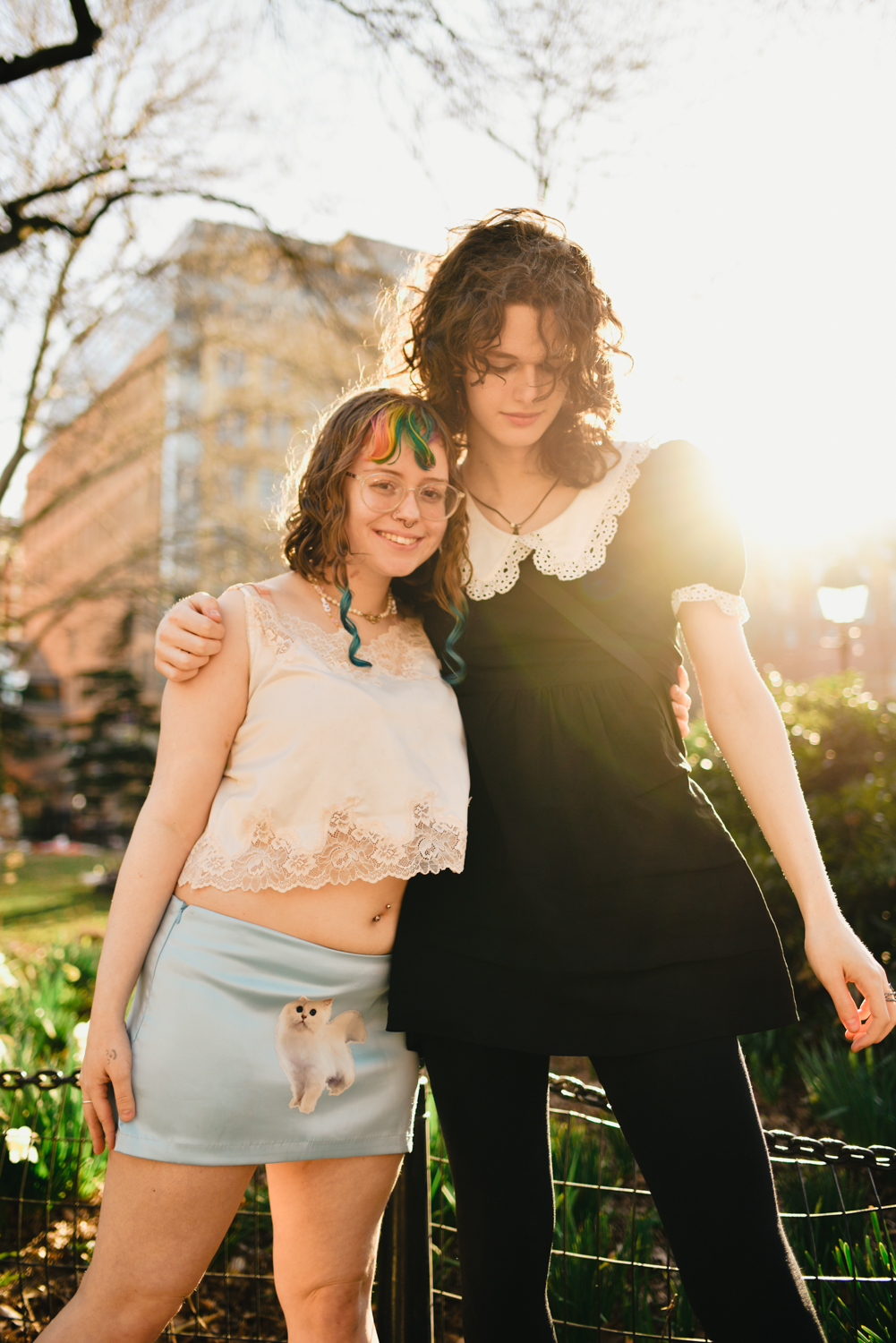
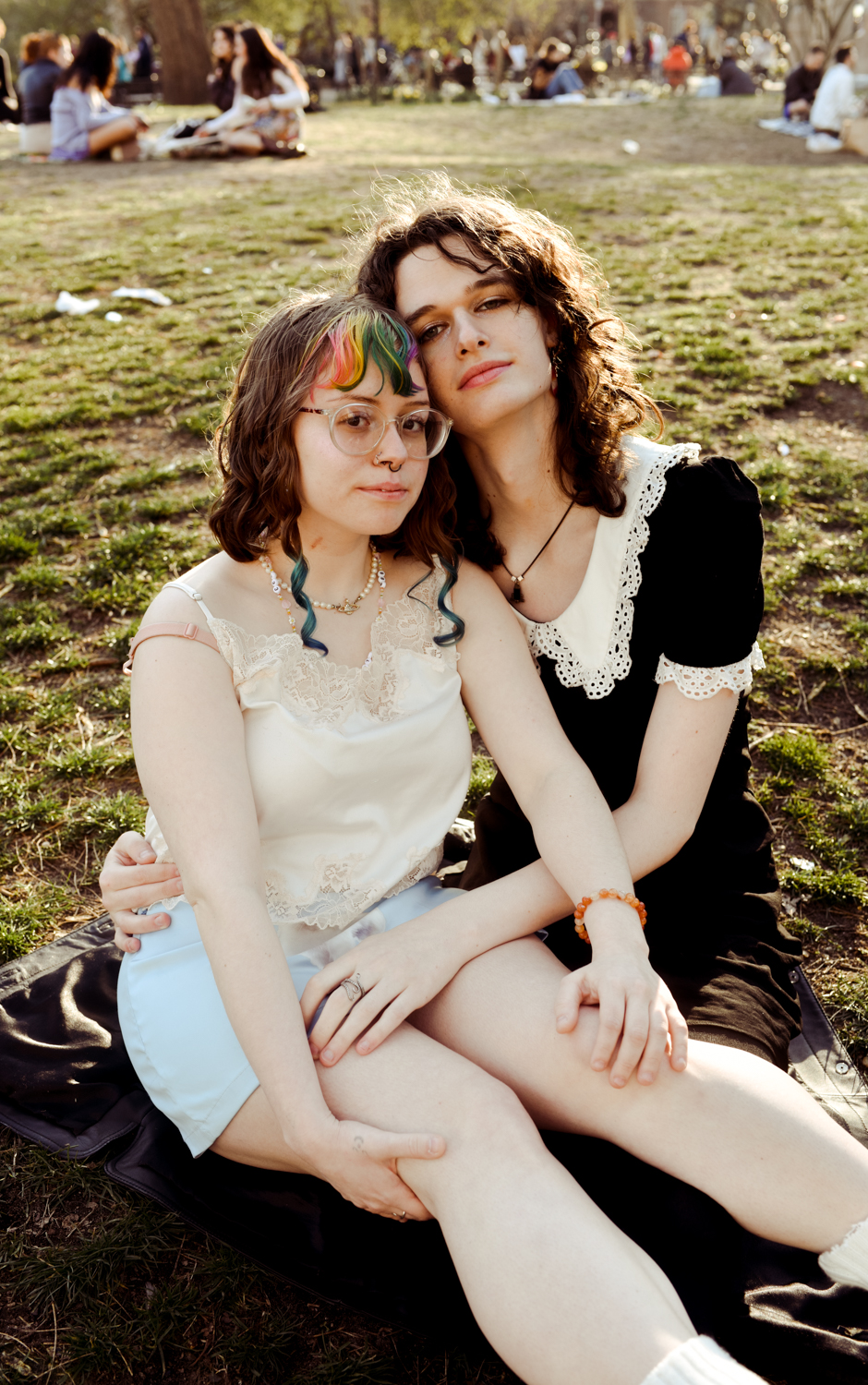
Ariel Rond (they/he), 21, is a junior studying linguistics at the College of Arts & Science, and Saoirse Sowell (she/they), 21, is a senior who studies mechanical engineering at the Tandon School of Engineering. Their first date — which wasn’t originally planned as such — was this past fall in Prospect Park, where they watched the sunset in front of a lake.
What’s the most beautiful part about being in a T4T relationship?
Saoirse: Both of us have the context to understand each other more. That lived experience of going through so much self-reflection is something you almost never find. You don’t find that level of looking at every single piece of yourself and remaking that.
Ariel: I feel like existing as trans in this world and in this society demands that you constantly have to explain yourself and question yourself and defend yourself. You just constantly have to make every part of you digestible in order to be treated with basic respect. All of those expectations that are placed upon us just kind of fall away within a T4T relationship. Even if we can’t completely understand each other, because gender is such an individual, personal thing a lot of the time, she understands that we’re both doing the same thing.
Saoirse: It’s a totally pressure-free way to live. Being together feels like that same warmth and comfort as being alone, as just hanging out in your house and taking a day for yourself. It’s that same comfort and lack of need for explanation, but you’re with somebody else.
Gigi & Miche
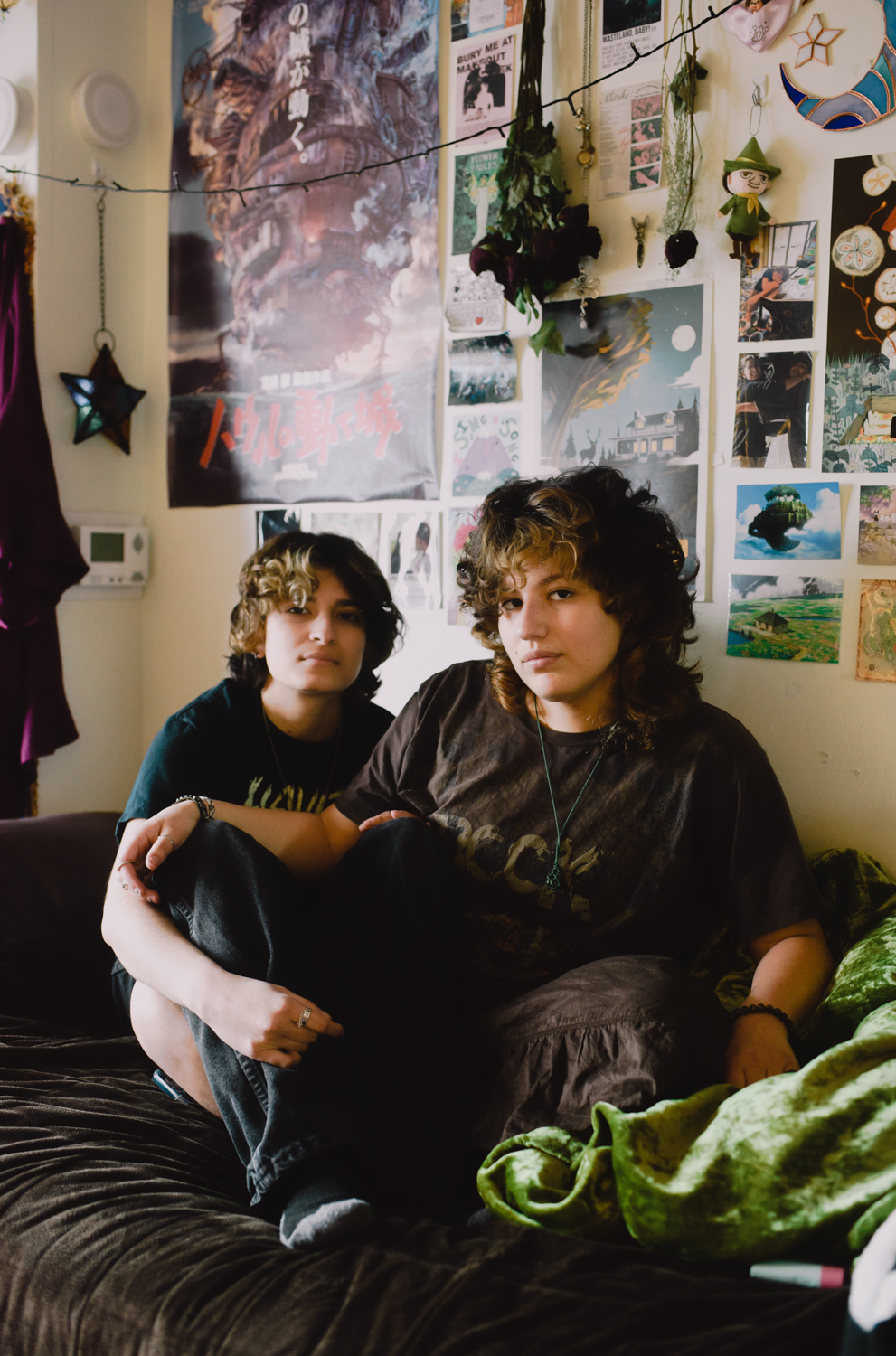
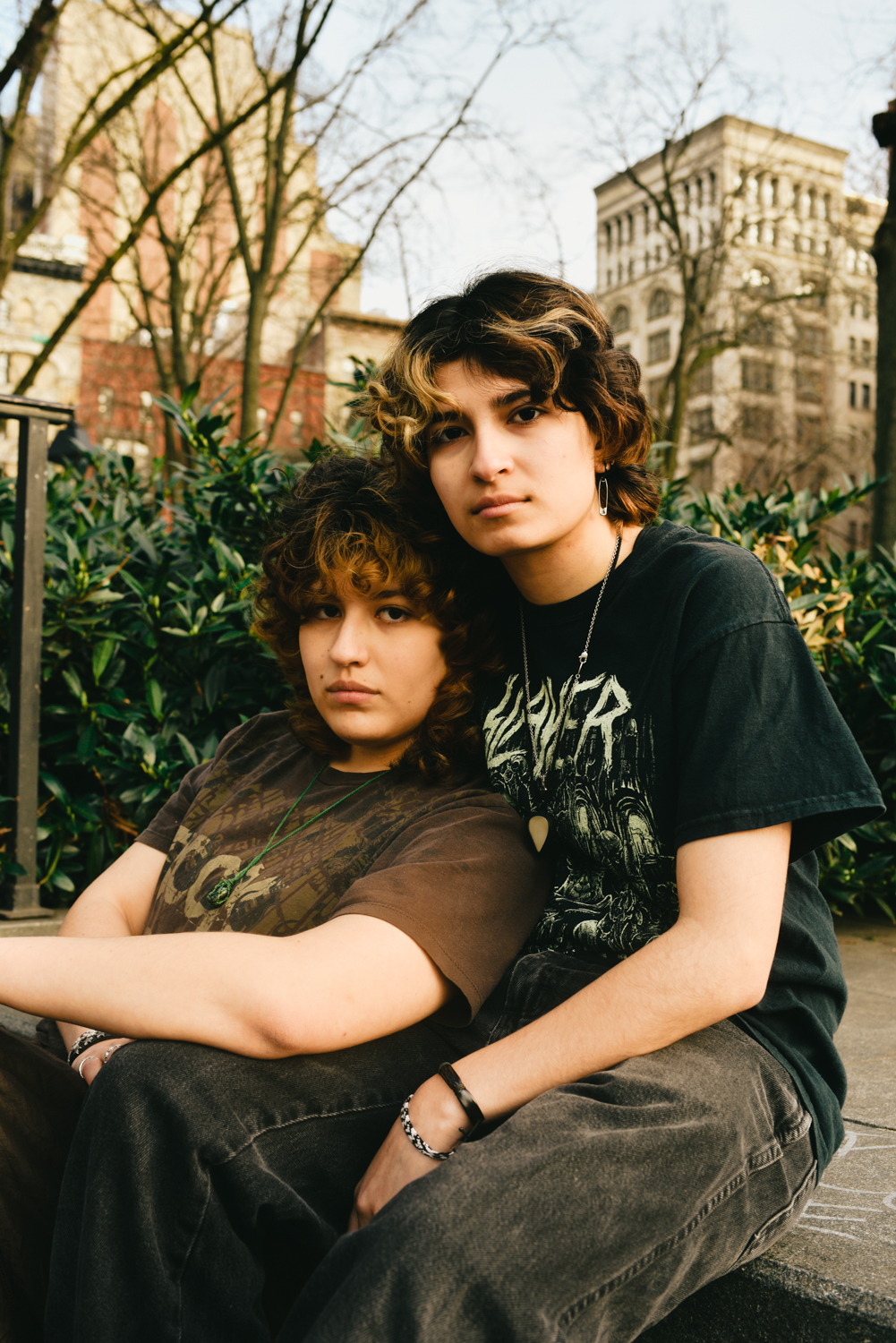
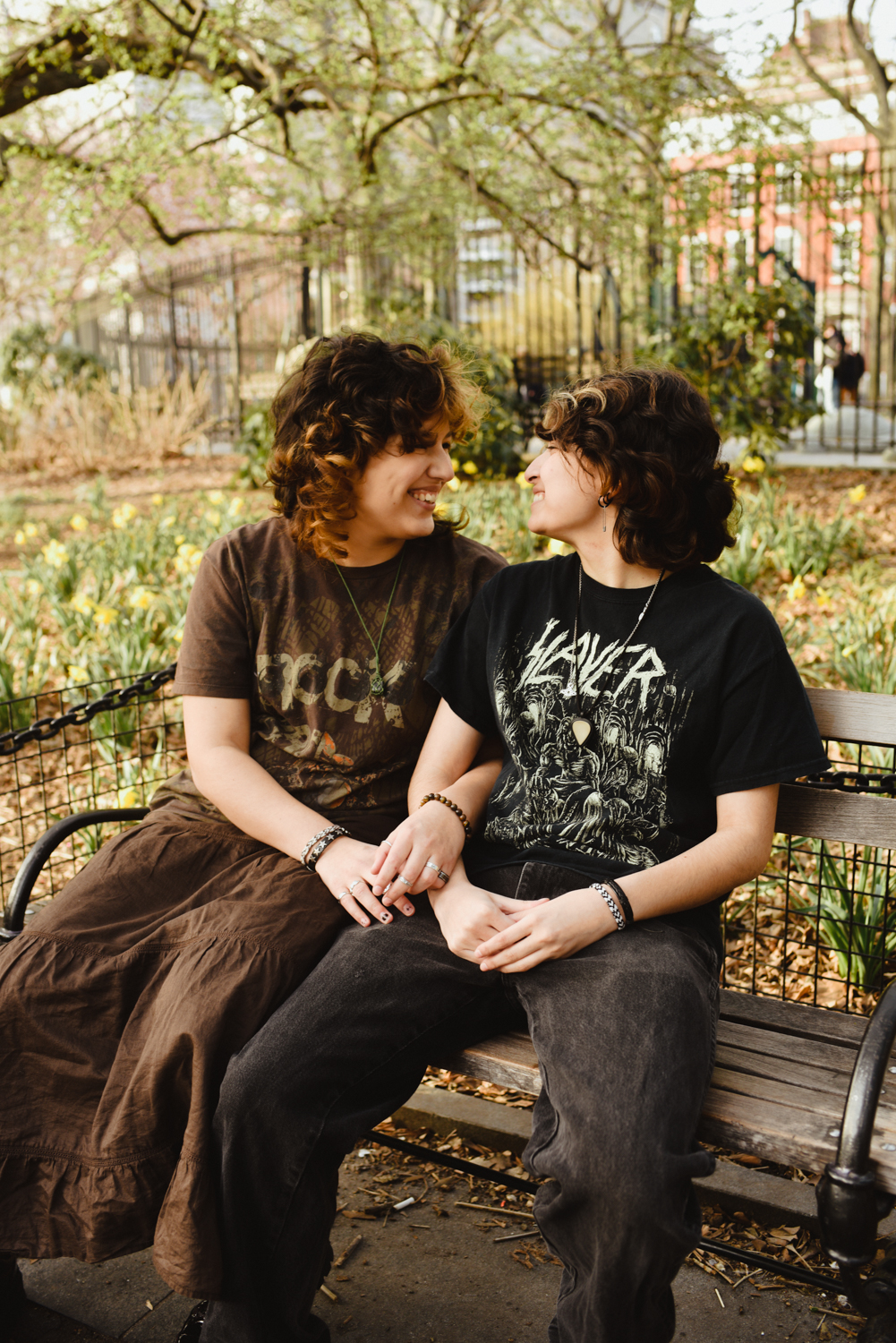
Gigi Portilla (he/she), 19, is a first-year in Global Liberal Studies at NYU. Miche Fernandez (they/them), 19, is a first-year majoring in art at Fairleigh Dickinson University. Gigi and Miche first met in the seventh grade through a mutual friend, but it wasn’t until their senior year that they grew close. They found themselves in the same sociology class and ended up sitting next to each other. That summer, they went to Pride together, and later started dating. They’ve been together for 10 months now.
How do you find comfort in each other and your relationship?
Gigi: I feel comfortable exploring who I am. Being genderfluid is not set in stone. It’s always changing, and I’m always just exploring myself and learning more about myself, and I have someone that I can talk to about it. I never feel like Miche will judge me, no matter what I feel regarding my gender.
Miche: Well, at home I stick to myself. I don’t really talk to anyone, because they just don’t seem to be listening to me. And then when I’m with him, I’ll just talk about whatever I like to talk about and she’ll listen. It won’t feel like I’m very lonely. She just accepts me. Accepts me for who I am.
Gigi: And also through this relationship, I think I found out that being trans is just so much more than something set in stone. There are no set rules for anything. It’s just the way you perceive yourself, and even if things change, it can be scary, but it’s OK.
Shagg & Raphael
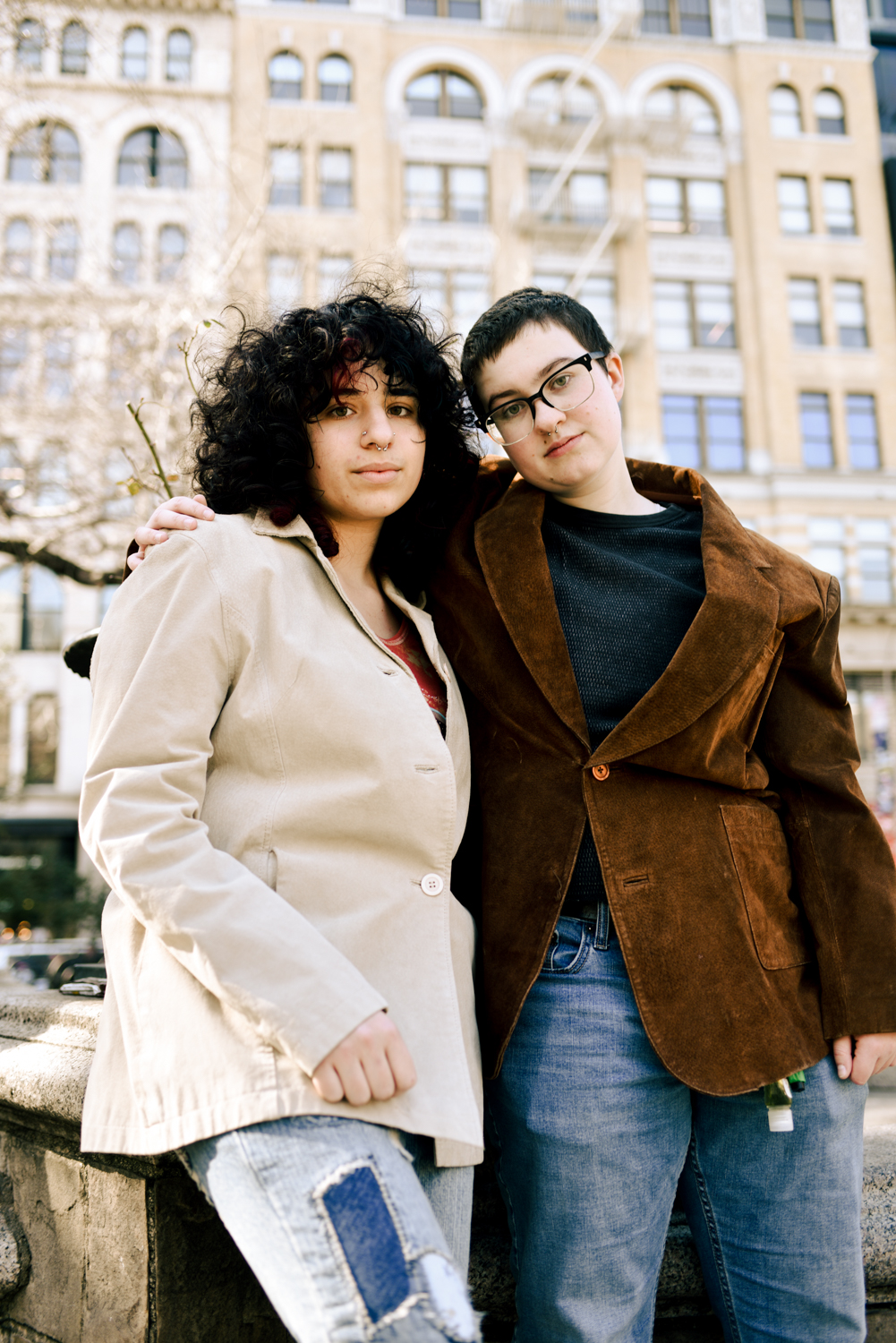
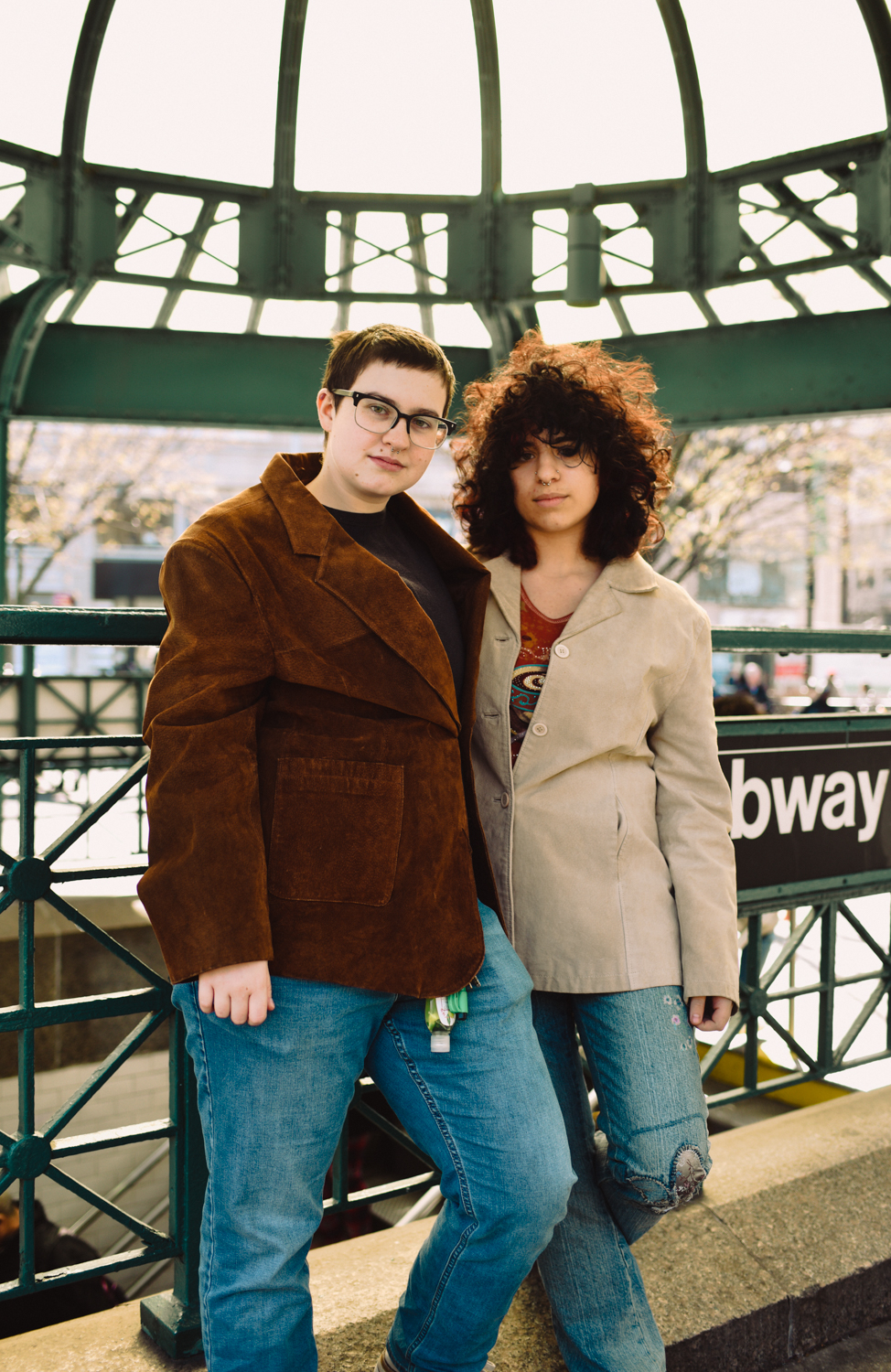
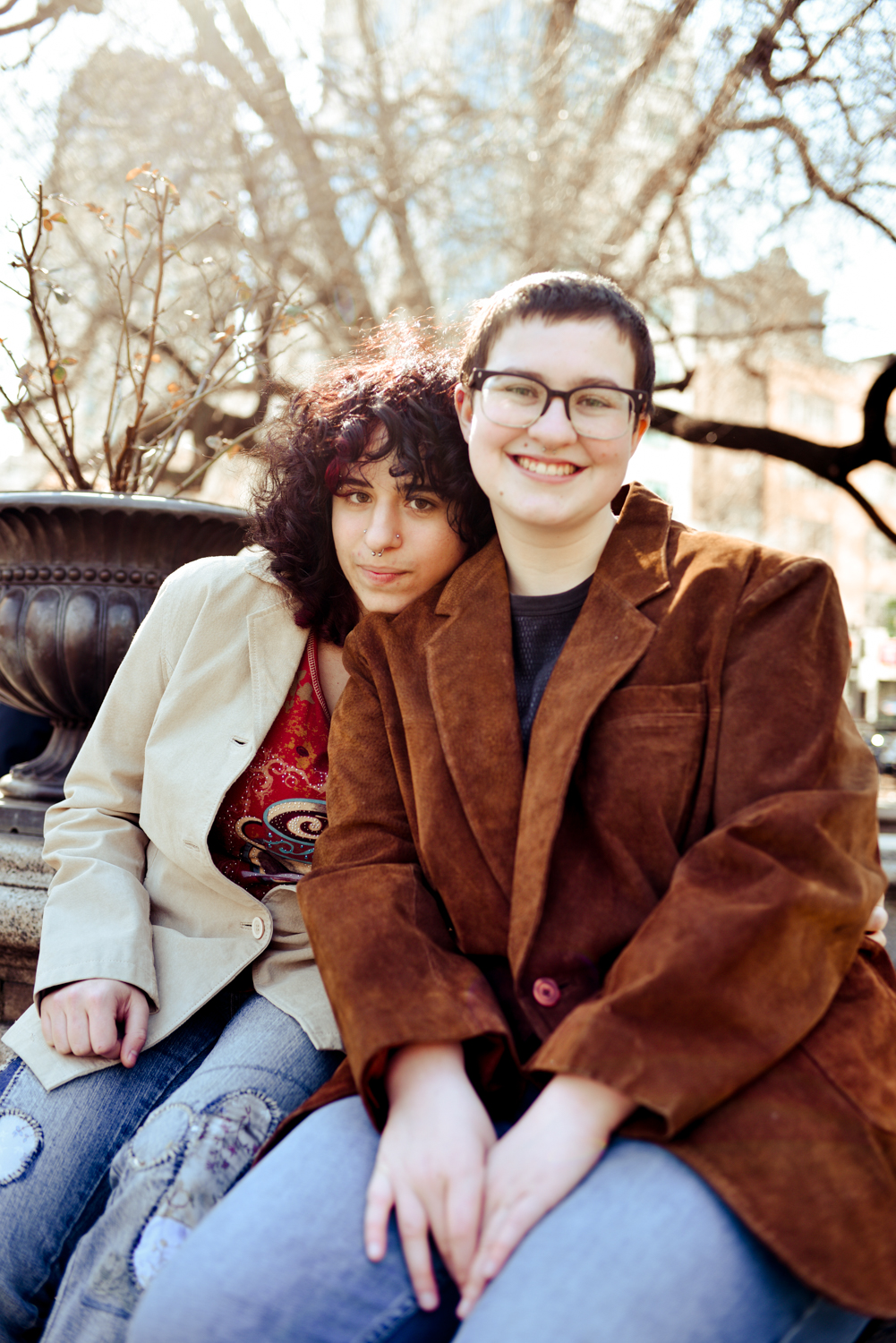
Raphael Williams (he/him), 20, is a junior majoring in physics at NYU, and Shagg Solarz (he/they), 20, is a sophomore majoring in history at Hunter College. The two met in 2021, while virtually playing Dungeons & Dragons with mutual friends. They’ve been together for six months.
Could you talk to me about finding trans community and the importance of that space?
Raphael: There’s a lot more freedom. It’s interesting, because on one hand, your identity is not a “thing” the way that it can sometimes be around cis people. But it’s also not invisible. You’re seen, but it’s not the most interesting or important thing about you.
Shagg: I don’t think I’ve actively gone out of my way to be surrounded by trans people. It’s just kind of something that happened. And I think it’s wonderful. Everyone engages with transness in a different way and with gender in a different way. It’s just fun.
Is there anything else that you want to add in regard to your relationship?
Shagg: We are both Jewish. You know, there’s a tradition of transsexuality and Judaism. If you read the Talmud, I believe they talk about many different genders, and some represent people who transition from one end of the binary to another. There’s also a lot of literature about Jewish trans people. And there’s a lot of trans people in the Jewish community today, including in more religious sects. There are a lot of trans men who navigate the Orthodox Jewish world in stealth and just present as cis men, basically. I think it’s cool that we’re continuing that tradition of transsexuality and Judaism.
Jinx & Dee
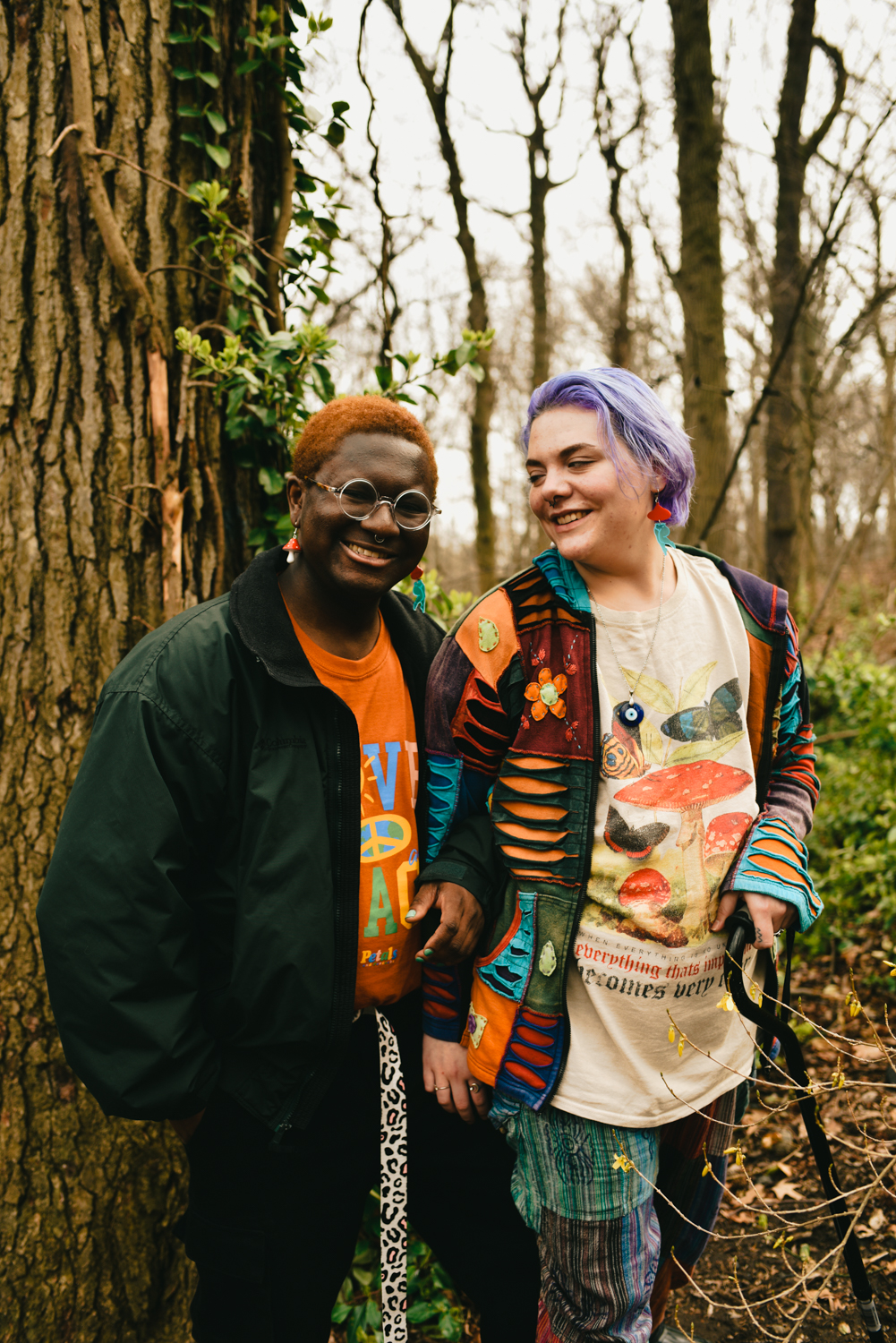
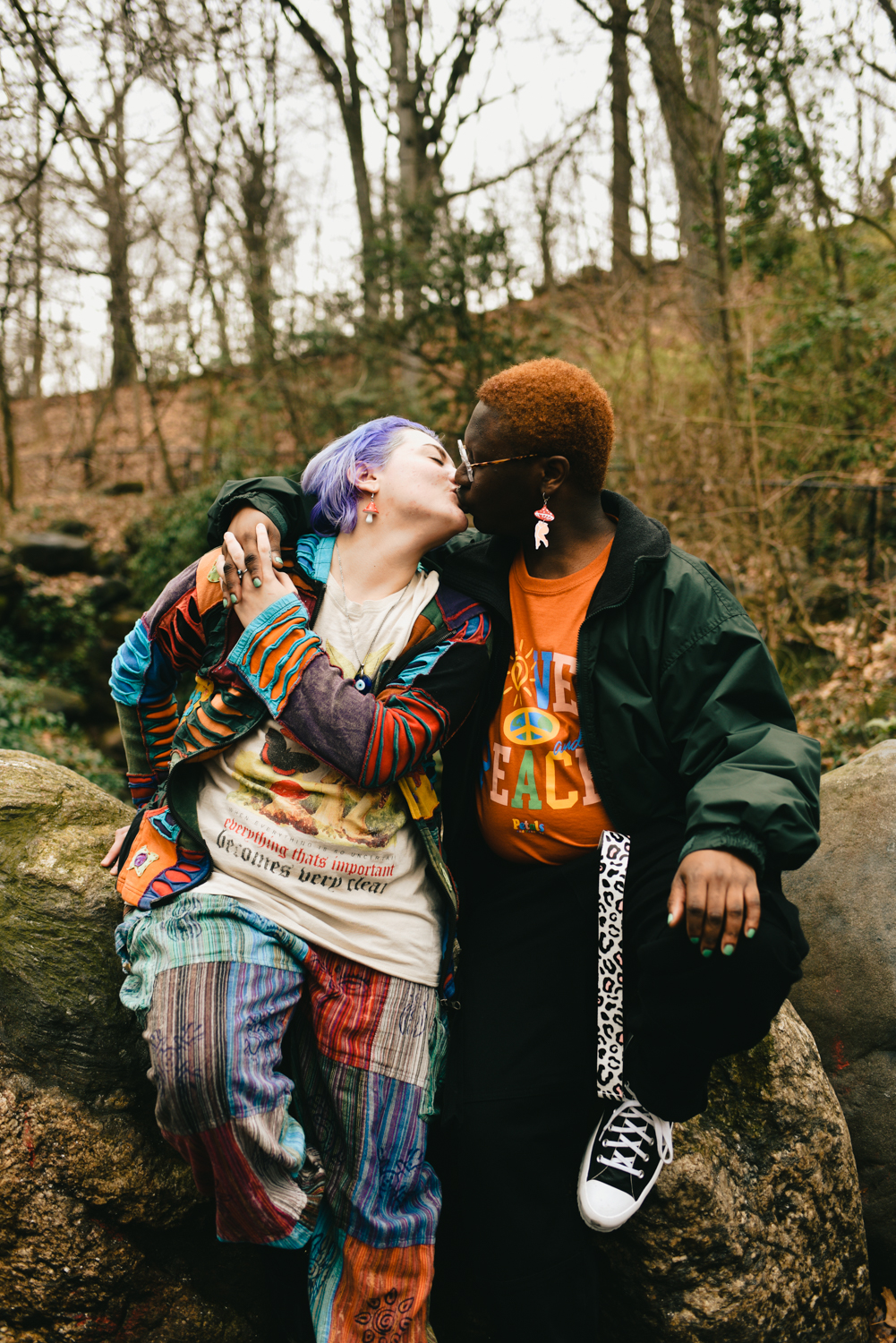
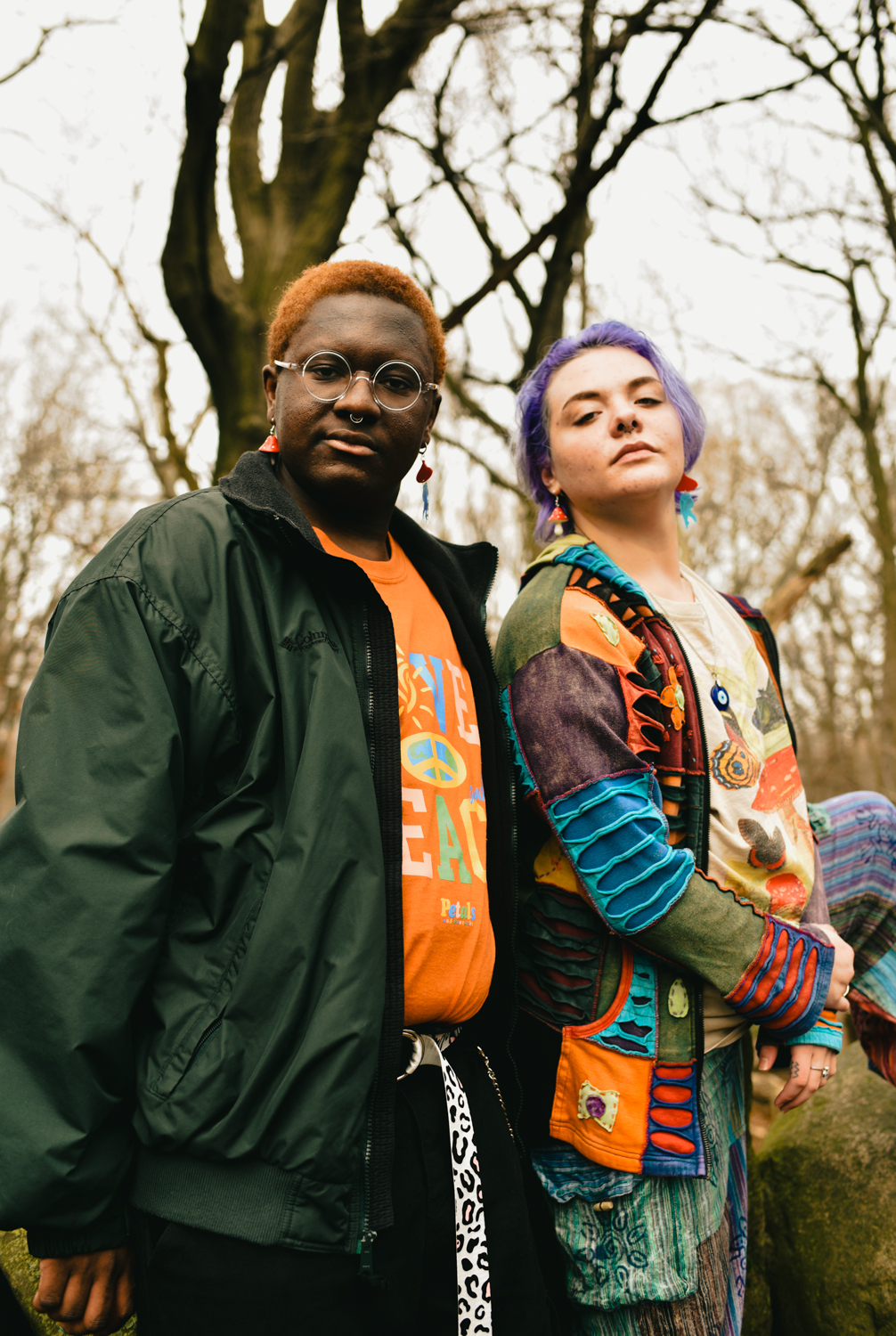
Jinx Sage (they/them), 21, is a junior studying intersectional advocacy and representation at the Gallatin School of Individualized Study, and Dee Oglesby (they/them), 22, is a sophomore majoring in graphic design at Middlesex College. They met on Lex, a queer dating and community app, in late 2021. They talked as friends for three months, bonding over their shared love for art. It wasn’t until January of 2022 that they went on their first date, and they’ve been together since. This past fall, Jinx had top surgery, which prompted the couple to create a photo series documenting Jinx’s recovery.
Jinx, you mentioned that last September you got top surgery. Talk to me as a couple — how did you guys go through that?
Jinx: It was very overwhelming because I wanted to have surgery sooner, but I wasn’t able to. I had classes starting the same day that I had surgery. I don’t really have a family that will come to the city or, like, help support me in that way, especially when it comes to being trans. Getting top surgery was something that not a lot of my family knew about or was supportive about until after it happened. It was just really necessary that I had someone there with me 24/7 the first couple weeks.
Dee: I think the experience as a whole of, “I’m helping you recover during top surgery” was very good for our relationship. I’ve never really had experience taking care of another person before that point. Especially if it’s 24/7 on the clock. I struggled a lot. I wasn’t sure what to expect. I should’ve definitely done more research. It really helped me understand more of Jinx’s needs and how I can support them even if I’m not always the best at it.
Jinx: It was hard at first, because I’m not someone that likes to depend on other people, especially when it comes to my physical needs. It was one of those times that because I was recovering, I wasn’t able to really mask my needs or like my emotions as much because I just needed them to be met. When they were helping me recover from top surgery, doing a lot of art and art therapy was really important to me. It was one of the things that I really could spend my energy on, and also have something physical produced from it afterward.
Leo & Koda
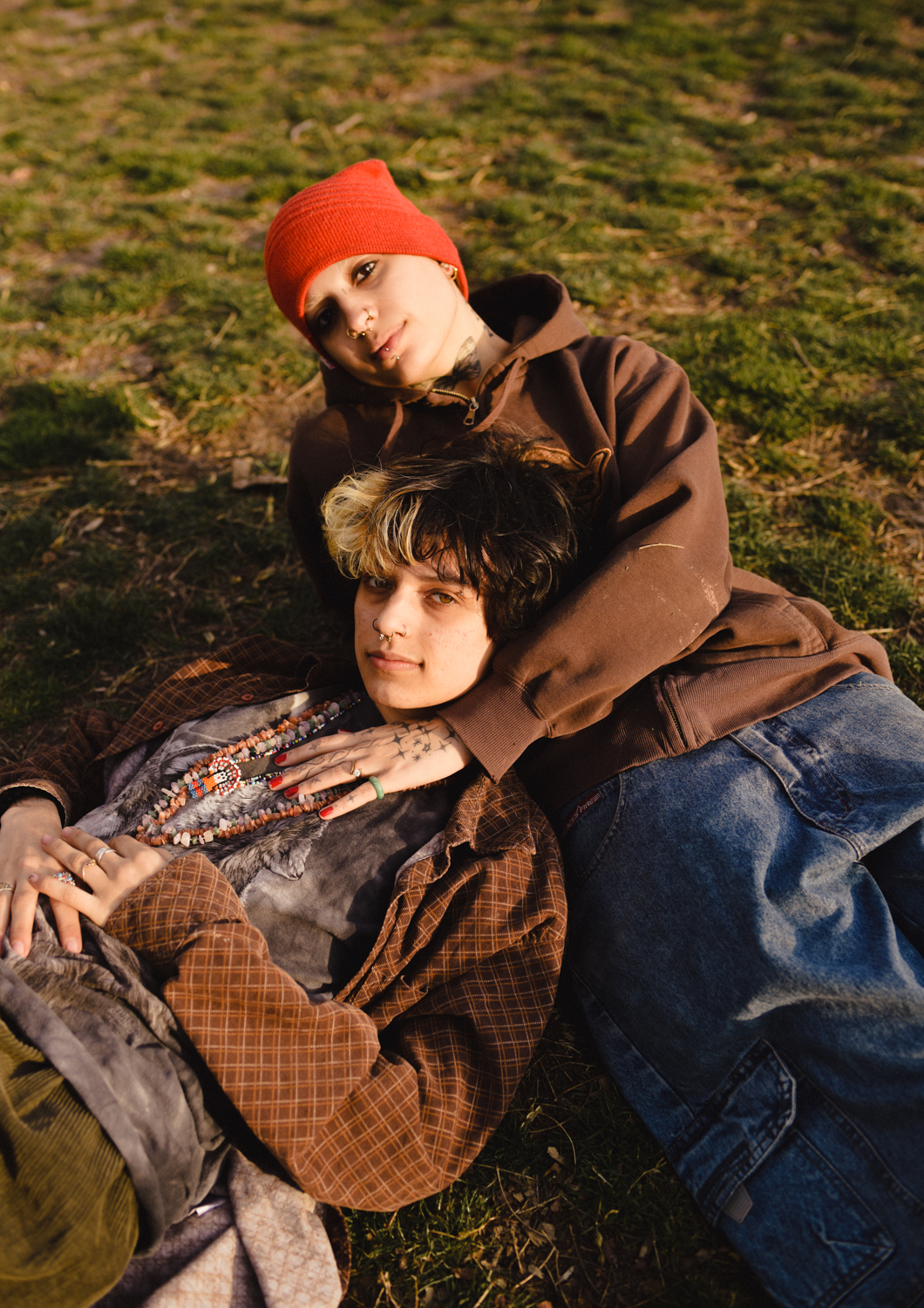
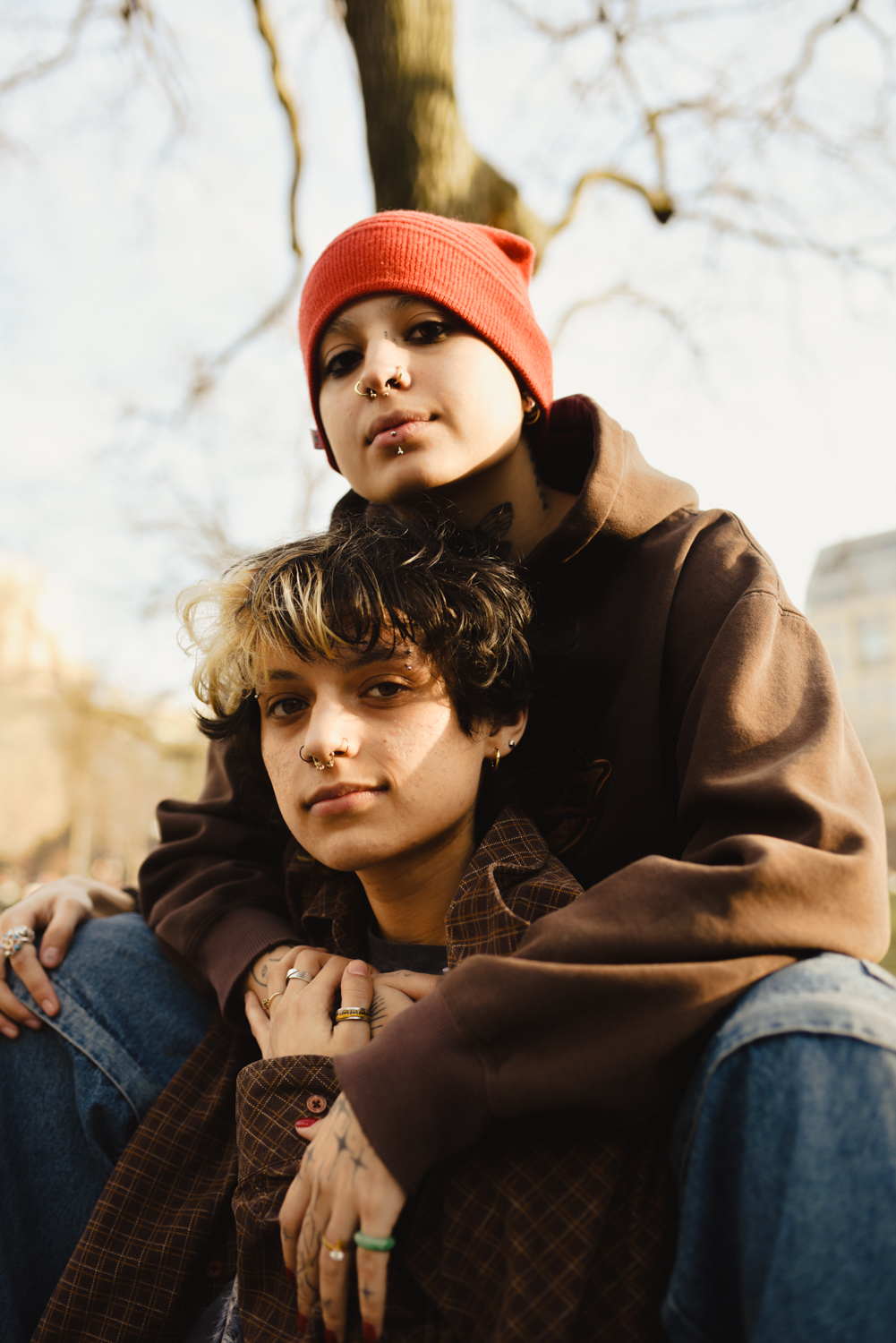
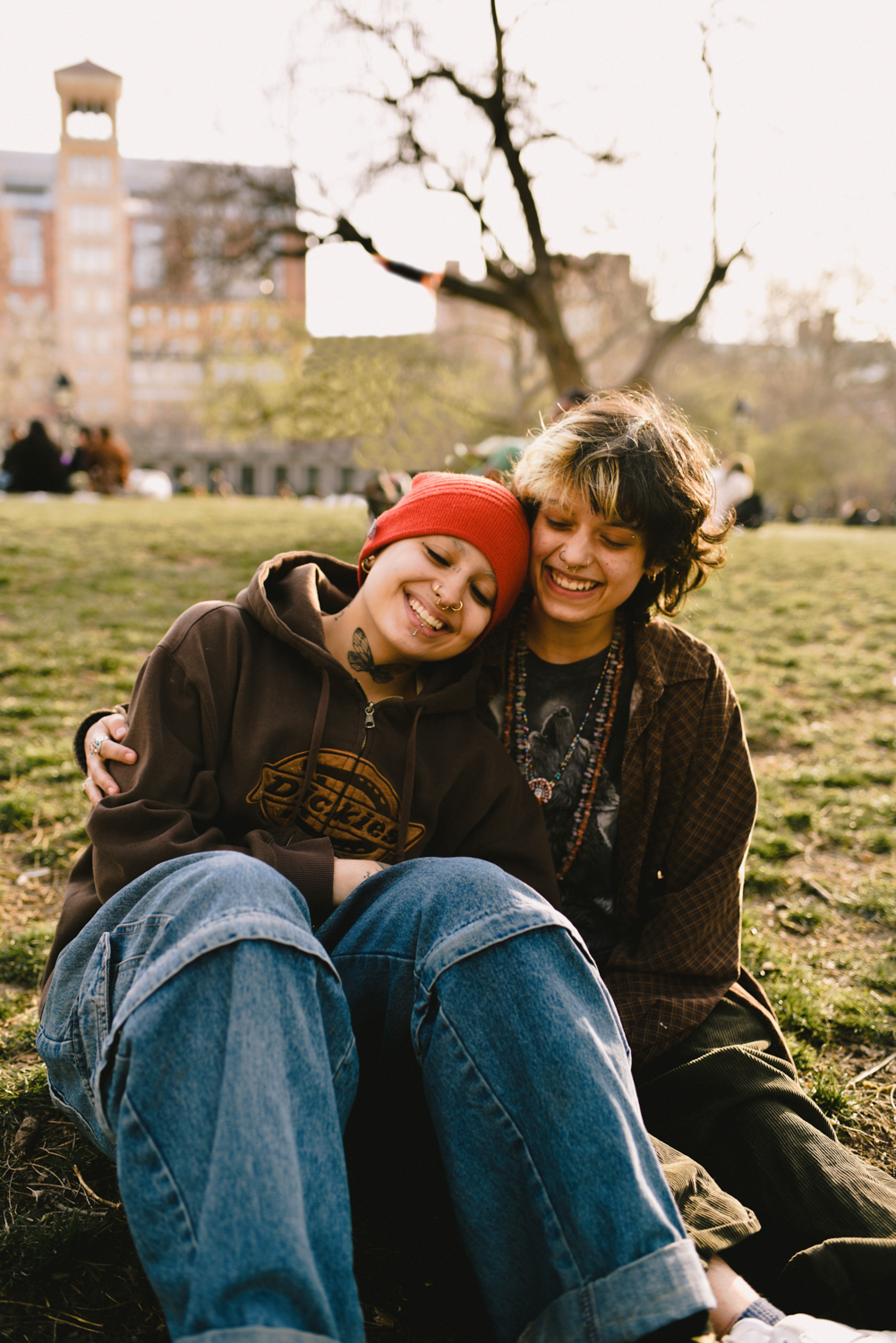
Leo Koulish (he/they), 19, is a sophomore at Gallatin, and Koda Fraga (he/xe), 19, is a tattoo artist and performer under the name Star. Outside of school, Leo also works at Trans Latinx Network, a nonprofit by and for trans people in New York City. Leo and Koda first met through a mutual friend last year, but didn’t get to really know each other until this past summer. They had their first date on this lawn in Washington Square Park, and have been together for nearly nine months now.
As Trans Day of visibility comes up, what are you two thinking about? What does Trans Day of Visibility mean to you?
Leo: I think that the most important thing that we need to do this year for Trans Day of Visibility is to center trans women of color and transfems of color. If you are a white trans person, you are still a white person first before you are ever trans. It doesn’t take away from your oppression and being trans. It just is what it is. If you are a white person, no matter what else your identity is, you need to be sitting down and listening.
Koda: I think that some trans people need to check themselves when it comes to the exclusivity in the trans community. This is a time when we all need to be supporting each other, and be a community. When people in the trans community are telling another person they’re not trans enough, that they don’t look trans, that they need to have surgery done in order to be trans — you know, it’s just all bullshit. Especially right now, why is that your main focus? We’re all so vastly different from each other. We’re different and that’s beautiful. Not everybody in the queer community is the same. That’s the whole point.
Leo: Holding space for each other to talk about what it means for us to be trans people in this world, especially with everything that’s going on right now, is so increasingly important. Even within the past six months, before these laws started being put in place, I’ve noticed out in public there’s been a different attitude towards being outwardly trans and outwardly queer. Even in New York City looks happen, people say things, and I think it’s just about making space for ourselves to be like, “It doesn’t matter. I’m still going to be me.”
Trans people deserve to be in every single place of this world. We deserve to be everywhere. We deserve to be seen. We deserve to be loud and we deserve to be visible. That’s what it means to me. And we deserve to share our stories.
Contact Adrita Talukder and Sasha DuBose at [email protected].
Developed for web by Kevin Wu.
